


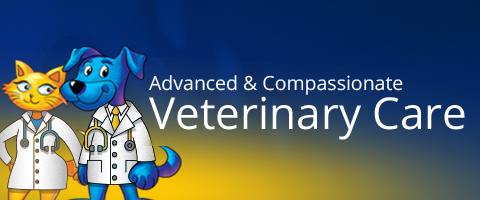
PetStar’s dental care consists of a lot more than just removing tartar and plaque from your pet’s teeth. Our goal is to restore your pet’s mouth to its normal, fresh and healthy state. Having your pet’s teeth professionally cleaned is the single most important medical treatment you can do to promote long-term oral health.
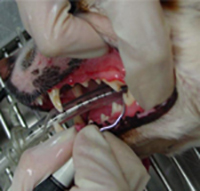 Teeth Cleaning
Teeth CleaningA professional dental exam, cleaning and poliching is performed by your veterinarian and technician while your pet is under general anesthesia. One of the most important parts of the process is cleaning off the tarter that collects below the gumline. This cannot be accomplished when an animal is awake, even if the animal is extremely tolerant in nature. The plaque and tarter accumulation is scaled off with a hand scaler, and then the remaining plaque and tarter are removed with an ultrasonic scaler. A tooth by tooth evaluation is performed for mobility, broken, extra, or missing teeth. Lesions, hyperplasia, infection and pockets (spaces where the gum is no longer adhered to the tooth) are also evaluated.
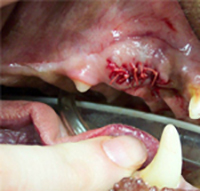 Extractions
ExtractionsIf extractions are necessary, the animal will have the benefit of both anesthesia and postoperative pain medications. Common extractions are the removal of Retained Deciduous Teeth (baby teeth), which should be extracted before misalignment of the permanent teeth occurs, painful or loose teeth also.
However, our objective is always to save as many teeth as we can, making your pet’s mouth happy and healthy.
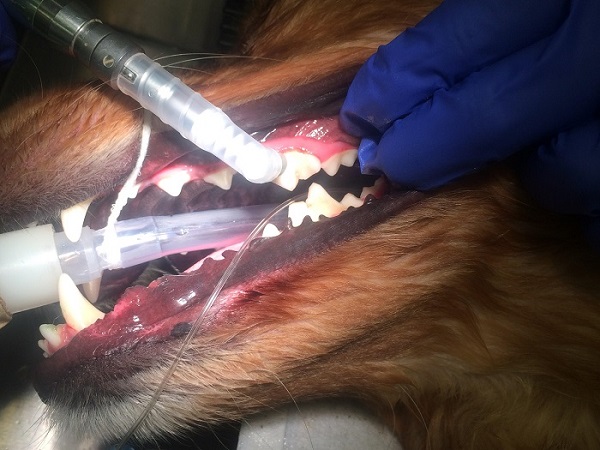 Once the teeth are cleaned, evaluated and any extractions are performed, the teeth are polished with a dental prophy paste.
Once the teeth are cleaned, evaluated and any extractions are performed, the teeth are polished with a dental prophy paste.
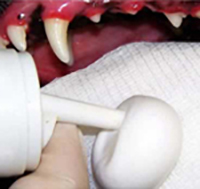
We can apply this after our professional dental cleaning. It is a 1.23% fluoride treatment, just like what is used in humans at the dentist’s office. It helps to strengthen tooth enamel, desensitize exposed dentin, and decreases the rate of plaque re-attachment. The Flurafom is applied to the teeth, and then wiped off 5 minutes later, to prevent any swallowing of the fluoride.
After a dental cleaning, keep your pet’s teeth clean by brushing with a special pet toothpaste kit or using other preventatives such as chew toys, oral rinses, healthy dental treats and dental diets.
Dental Care should be a part of your pet’s annual Veterinarian Examination. Your Veterinarian can recommend treatments and maintenance practices to ensure good oral hygiene